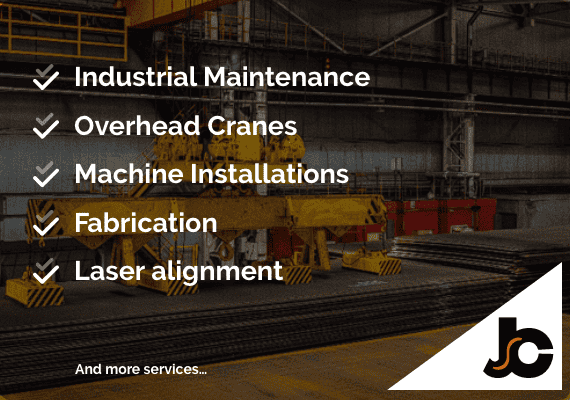Filling gaps in your workforce can be challenging because you need the skills and experience that are not always available in-house.
Labour hire is a term used in Australia and other parts of the world to describe a work arrangement where a company hires an employee through an employment agency. It can be for temporary, contract or permanent work.
In this article, we’ll go over what labour-hire is, how it works and how it affects both employers and employees.
What Is Labour Hire and Does It Work?
Labour hire is the use of an external company to provide workers for a specific task or period of time.
It can be an effective way to manage labour costs and meet peaks in demand, but it is important to choose a reputable provider who can deliver the right skills and experience.
There are several things to consider when deciding whether labour-hire is right for your business, including:
- the type of work you need to be done,
- the length of time you need coverage for,
- and your budget.
Labour Hire Services
Labour hire services provide businesses with reliable workers. It can be particularly useful for businesses that experience seasonal peaks and troughs in demand or that require specialist skills for a short-term project.
Common labour hire services include:
- office support staff
- factory workers
- construction workers
- agricultural workers
The labour-hire company will typically source the workers, manage payroll and provide insurance cover. It can free up businesses to focus on their core activities. Labour hire can also be an effective way of reducing costs, as businesses only pay for the labour they use.
In addition, it can help businesses to avoid the costs and bureaucracy associated with hiring staff directly. As a result, a labour-hire is a popular option for many businesses across various industries.
Pros and Cons of Labour Hire for Employers
Labour hire can be a great way for employers to get the skills and human resources they need, whether for long-term needs, short-term or project basis.
PROS
There are several reasons why employers might choose to go the labour-hire route.
- First of all, it can be a more cost-effective solution than hiring staff directly. Labour hire agencies typically have access to an extensive database of potential employees, so they can often find candidates who are a better fit for the job and willing to work for less money.
- In addition, labour hire agencies can provide employers with flexibility in terms of staffing levels. If demand for a product or service fluctuates, employers can adjust the number of staff they hire from the agency accordingly.
- Finally, labour hire agencies can help to reduce the administrative burden on employers, as the agency will take care of all the tasks involved with finding skilled workers.
CONS
There are several potential disadvantages for employers using a labour-hire agency.
- One of the most significant is the loss of control over employee selection. It can lead to decreased productivity and morale and increased turnover. When an employer uses an agency, they are typically less involved in the selection process and may end up with employees who are not the best fit for their company.
- Additionally, agencies often charge higher rates than if an employer were to hire workers directly. It can be a high cost for businesses, particularly small businesses with tight profit margins.
How Labour Hire Affects Employees
When a company decides to use a labour-hire agency, there can be some impacts on employees.
- First, the labour-hire workers may not have the same level of commitment or loyalty to the company, which can lead to lower morale among the existing employees.
- Finally, the use of labour-hire agencies can create a two-tier workforce. It can hurt team dynamics and productivity. Overall, using a labour-hire agency can have several potential impacts on current employees, both positive and negative.
Common Professional Trades That Use Labour Hire Companies
Labour hire companies are becoming increasingly popular in a variety of industries as a way to fill staffing needs.
Several professional trades commonly use labour-hire companies to supplement their workforce.
The mining and construction industry often relies on labour-hire firms to provide skilled workers on a short-term or contract basis.
Other trades commonly use labour-hire to fill the need for both general labourers and skilled labourers, including catering, cleaning, and event staffing.
Labour hire can be an advantageous way for companies to meet their staffing needs without incurring the cost and hassle of recruiting and training full-time employees.
It can also benefit workers, giving them greater flexibility in terms of hours and working conditions.
Whether you’re a business owner looking for extra staff or a worker seeking flexible employment, labour hire may be worth considering.
About Jones Complete Services
As a leading labour hire company, we deliver quality and reliable services to Electricians, Mechanical Fitters, Boilermakers, Riggers, Overhead Crane Technicians and a multi-skilled workforce.
The JCS whole team are driven, safety-conscious and continually strives for excellence, as evidenced by our perfect safety record. All our employees are trained in working at heights and confined spaces and are covered under the relevant insurances. Our mandatory quality improvement programs mean all employees are well trained in hazard identification and risk management, ensuring all job sites are safe.
We are experienced professionals with a reputation as one of the fastest growing, leading labour hire companies and are dedicated to maintaining this reputation.
Contact us for further information on our labour supply solutions.
Frequently Asked Questions
What Is the Labour Hire Licensing Act?
The labour hire licensing scheme is designed to protect workers from being exploited by labour-hire providers. Labour hire providers must be licensed to operate.
The labour hire licensing Act applies to all labour-hire providers, regardless of size or industry. A labour-hire company must comply with several requirements, including providing written contracts, paying workers their entitlements, and maintaining appropriate insurance cover. The labour hire licensing Act also makes it an offence for a labour-hire provider to knowingly or recklessly refer a worker to a business that is not licensed.
If you are a worker referred to a labour-hire provider, you can check whether they are licensed by searching the public register of licensed labour-hire providers.
What Is a Labour Hire Company in Australia?
A labour-hire company in Australia is a company that provides the right worker to businesses on a short-term or temporary basis. Labour hire companies specialise in a particular industry or trade and typically have a large pool of workers with the skills and experience that businesses need.
Businesses use labour-hire companies when they need to increase their workforce for a short period or when they need workers with specific skills or experience. The labour-hire company is responsible for paying the workers’ wages and superannuation and providing workers’ compensation insurance. Labour hire companies typically charge businesses an hourly rate for the workers they provide. Businesses are not required to provide any additional benefits to labour-hire workers.
How Do Labour Hire Companies Make Money?
While some may focus on providing low-cost workers to clients, others may choose to focus on providing high-quality workers for a premium price. Some companies may also offer a combination of both services. No matter what approach a labour-hire company takes, there are a few key ways they can generate revenue.
First, labour hire companies typically charge a fee for their services. This fee can be structured in several ways, but it is usually a percentage of the worker’s wages. Second, labour hire companies may also charge clients for additional services, such as onboarding or training programs. Finally, some companies may also earn revenue from selling products related to their business, such as uniforms or safety equipment.
While there are many ways for labour-hire companies to make money, these are some of the most common.
What Is the Difference Between Casual and Labour Hire?
There are a few key distinctions between labour hire and casual employees. The most obvious difference is that labour-hire workers are employed by a labour-hire company, while casual workers are directly employed by the business they work for.
It means that labour hire companies are responsible for finding and vetting workers and managing payroll, occupational health and safety, and other HR-related tasks.
On the other hand, casual employees are typically responsible for their taxes and superannuation. In addition, casual workers often have more flexible hours than labour-hire employees, as set shifts or rosters do not restrict them.
Labour-hire employees also tend to be paid slightly higher rates than casuals, as they are typically more experienced and skilled.
Why Do Companies Use Labour Hire?
One of the primary reasons that companies use labour-hire is to save on costs.
Companies can avoid the high costs of hiring full-time employees by using contract labourers, such as providing benefits and paying for training.
In addition, companies can be more flexible with their staffing needs when they use labour hire since they can increase or decrease the number of workers as needed. It can be particularly beneficial during busy times or when a company is expanding its operations.
Finally, many companies use labour-hire to reduce their environmental impact. Companies can avoid the pollution and waste associated with workers commuting to work. As a result, both businesses and the environment can benefit from labour-hire arrangements.














